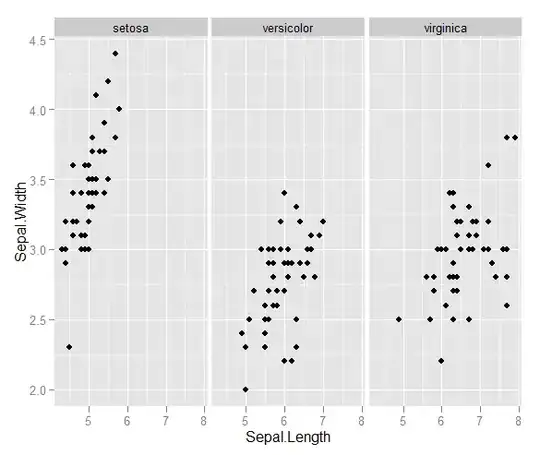I'm doing my PhD in geomechanics. I thought we use a Poisson-Weibull distribution (for the variability of a parameter at the rock), but reading more about the subject I think maybe is a Poisson-Weibull process and I don't know the difference. To complete the problem I'm not too knowledgeable about the language of mathematics, so if you could give me an example it would be awesome!
Asked
Active
Viewed 8,837 times
14
Steffen Moritz
- 1,564
- 2
- 15
- 22
user40948
- 141
- 1
- 3
-
3The Wikipedia article on [stochastic processes](http://en.wikipedia.org/wiki/Stochastic_process) provides a clear, succinct, non-mathematical answer on the first line and right next to it is a picture of data that are typically thought of as resulting from a process. Have you investigated these materials? – whuber Feb 26 '14 at 16:13
-
1A Poisson process is a model for a "real world" process that generates events in time. It has many distributions associated with it depending on what aspects of it you consider (e.g. the distribution of event-times in a fixed window is uniform, the distribution of time between events is exponential, the distribution of the number of events in a time interval is Poisson, etc). – Glen_b Feb 26 '14 at 23:24
-
1Both of the comments could be considered answers, albeit brief answers. – Drew75 Feb 27 '14 at 07:44
-
1Hi everyone, thanks for the answers! I have read the wikipedia article, but I think I have a more elementary problem to understand what real means "process" or even "distribution". I know the format of an exponetial distribution, or uniform, or Poisson, but I have a problem on understanding what this really means! I know that on a normal distribution we have a little chance to find events really "small" or really "big". I'm sorry, I'm sure your answers are good, but I still need a simpler explanation. Thanks anyway! – user40948 Feb 27 '14 at 12:46
2 Answers
12
- Poisson distribution = a specific discrete probability distribution, i.e. a probability distribution characterized by a probability mass function. Specifically, in the case of Poisson, it is defined as $P(k \text{ events in interval}) = \frac{\lambda^k e^{-\lambda}}{k!}$, $\lambda \in \mathbb{R^+}, k \in \mathbb{N}$.
- Poisson process = a stochastic process, i.e. a collection of random variables representing the evolution of some system of random values over time. In other words, it is a family of real random variables $(X_t)_{t\in T}$ defined on a probability space $(\Omega,\Sigma,P)\ ,$ where the set T is interpreted as ''time''. Specifically, a Poisson process can be defined in different ways, not necessarily using the Poisson distribution:
Franck Dernoncourt
- 42,093
- 30
- 155
- 271
1
A random process is a sequence of random variables. That means, when talking about a process, e.g. Poisson process, an element of occurrences as a sequence in time is involved, while when we talk about random variables and their distribution, e.g. Poisson distribution, there is no such element involved, and we only have a random variable X with its associated distribution.
Example:
Random variable X: the number of phone calls to a receptionist per hour follows the Poisson distribution (and with the distribution known we can have the probability of receiving a certain number of phone calls in a given time interval);
Random process {X1, X2, ....}, where Xi: the time when the ith phone call was received, is a Poisson process.
bnd
- 73
- 6
-
How does the Poisson process compare to the Gaussian process? (aka are kernels and conditioning methods used to infer what $y_i$ an unobserved $x_i$ might take on?) – jbuddy_13 Apr 07 '21 at 01:54
